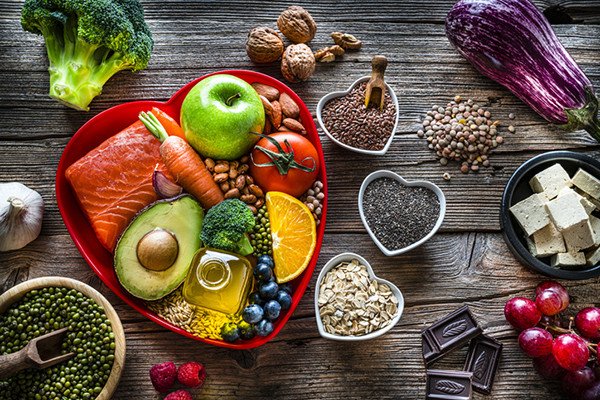Heart disease is one of the world’s biggest health challenges. The nutrients hidden in some of our favorite foods can have a huge (and lasting) impact on our heart’s overall well-being. Here, we’re sharing the ingredients that can help prevent cardiovascular disease and keep your heart happy.
Beets
Beet juice contains an active plant chemical, nitric oxide, which is proven to help boost blood flow and lower blood pressure. The deep, earthy flavor of beets can make it unpopular, so try pairing it with sharper flavors: apples and citrus fruits are great additions to fresh beet juice.
Blueberries
Blueberries are good for promoting heart health. It’s all because of the antioxidants they contain. Sugar damages the lining of our blood vessels, making them almost hairy on the inside. The cell damage inside our blood vessels is being repaired all the time by antioxidants. That’s why we say they’re anti-aging: they’re constantly repairing damage. Research shows that fresh, frozen and dried blueberries are all good sources of these wonderful nutrients.
Brazil nuts
Delicious, flavorful and full of cholesterol-stabilizing monounsaturated fats, these creamy nuts make a great snack. But if a handful of Brazil nuts isn’t your thing, try adding them to some of your favorite recipes. Brazil nuts ground into a fine sandy powder would be perfect in a rich pesto – and they’d also add a wonderful nuttiness to shortbread or chocolate brownies. Just remember that all fatty nuts and seeds should be eaten fairly fresh; their crunch and clean flavor can quickly go rancid.
Bulgur wheat
Bulgur wheat, a whole-grain cereal commonly consumed in the Middle East and Mediterranean, has the highest fiber content of any whole grain. “Strong research shows that if you have more fibre, it’s a very good way to reduce LDL cholesterol – the bad kind – in your blood,” he says. This directly impacts heart health, as your arteries and cardiovascular system stay healthy. Balancing cholesterol, which is the waxy fat in our blood, is a major benefit of fibre, and most of us don’t get enough of it in our diets.
Butter
US research published in the journal Nature shows that the saturated fats you get from dairy are very different from those in meat. We’re starting to recognise that they can reduce the risk of heart disease and protect against diabetes, completely changing the prevailing wisdom. While anyone with high cholesterol should opt for low-fat dairy and vegetable oils, adding a dollop of butter to your steamed vegetables is a good way to get a dose of heart-healthy pentadecylic acid.
Cherries
A pack of ripe cherries is an uplifting treat for the soul – the deep red skin and ruby flesh of cherries is a clue: like blueberries, they contain high-pigment antioxidants that help repair cell damage. US research suggests that eating a portion of berries daily helps keep arteries healthy. Frozen fruit retains its nutrients well, but if you want to use canned, remember that about half of the antioxidants will be absorbed into the syrup.
Chia seeds
In a hearty porridge or baked into a protein bar, these Central American seeds are packed with healthy nutrients, including a big dose of omega-3 essential fatty acids. This is one reason why chia seeds have become such a valuable ingredient in recent years. However, if you’re following a plant-based diet, it’s important to remember that omega-3s from any plant source need to be converted by our bodies into a heart-healthy form. This is a fairly inefficient process, so anyone relying on plant sources should also use an omega-3 supplement.
Dark chocolate
The heart-healthy ingredients in dark chocolate are antioxidants that come from the cocoa fruit; these nutrients work hard to repair the damage done to our cells by sugar.
Herring
Pickled herring salads may be traditionally the preserve of Scandinavia and Eastern Europe, but people around the world can benefit from eating more of this oily fish. Herring is very high in omega-3s, containing almost twice as much as mackerel.

